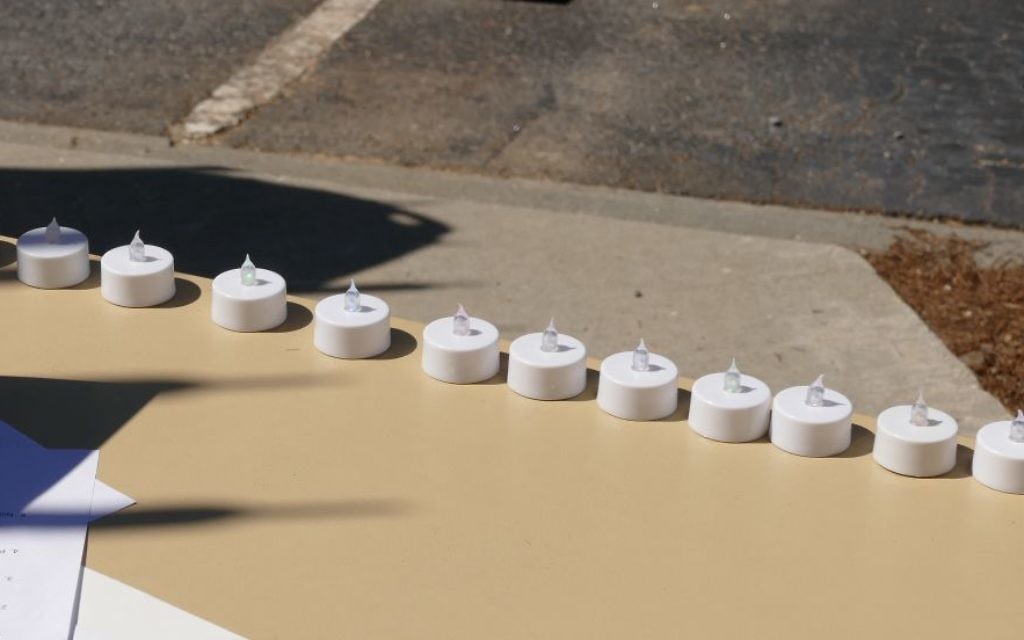Students Walk Out for Action, Mourning
A high school senior and sophomore explain why they joined the 17-minute demonstration March 14.
They heard the announcement at 9:55 a.m.
At 10 a.m., they would join their friends and some teachers on the football field.
Noah and Elijah spotted the drone immediately, the drone equipped to record this emotionally charged, momentous event.
Get The AJT Newsletter by email and never miss our top stories Free Sign Up
Although Mother Nature wasn’t ready to give up the cold weather, 80 percent of the student body walked out of their high school in northern Fulton County to attend a memorial for peers killed in a school in Parkland, Fla., a month earlier.
Before the walkout, teachers and students engaged in conversation around the First Amendment — freedom of speech, freedom of assembly. In discussions concerning any possible flaws in our democratic process or in our Constitution, all agreed that our system is far superior and civilized to what other countries, under a monarchy, for example, would experience.
Elijah, who is involved with model United Nations, learned at a conference held in New York that many issues facing American schools don’t exist in other countries. We have the Second Amendment, which both protects us and can frustrate us.
In speaking with these two young men, one a sophomore and one a senior, I learned they were clear on why they joined hundreds of their fellow students in the 17-minute walkout.
Both agreed that changes could happen only through the right to vote. The senior I spoke with is eligible to vote this year, as are all his classmates. They take this privilege seriously, intuitively understanding their power is in the ballot.
Both young men agreed there is not a single solution to treat the ills of our schools and our country. Additional amendments or additions to amendments are where our politicians must start.
In reference to gun control, they both agree, as do their friends, that stronger background checks and that an increase in the age to 21 to be eligible to purchase a gun are two fixes that can happen fairly quickly. “It’s a start.”
Most of the students who gathered on the football field were not there to protest the use or misuse of guns. Their walkout was a performance out of profound respect for the 14 high school students and three faculty members who lost their lives in a violent assassination in Florida.
They walked to raise awareness that problems exist and that it is our politicians who are commanded, by voters, to put in the bipartisan effort to find solutions to the issues brought before them.
The tragedy at Marjory Stoneman Douglas High School affected them not only on the intellectual level, but also on an emotional level. Friends from their summer camp are students at the school or live in Parkland.
As they heard the reading of the names of the 17 people killed, the 16-year-old sophomore said, it brought back emotions and memories of his experience at the Children’s Holocaust memorial in Israel.
The scoreboard timer read 17 minutes at the same time an announcement was heard: The time devoted to this very moving memorial had come to an end.
As they returned to their school building, each participant was given information with the names and telephone numbers of elected officials they can contact, along with a list of the names and ages of the 17, who will be remembered through walkouts, marches and social media.
And life goes on.





comments